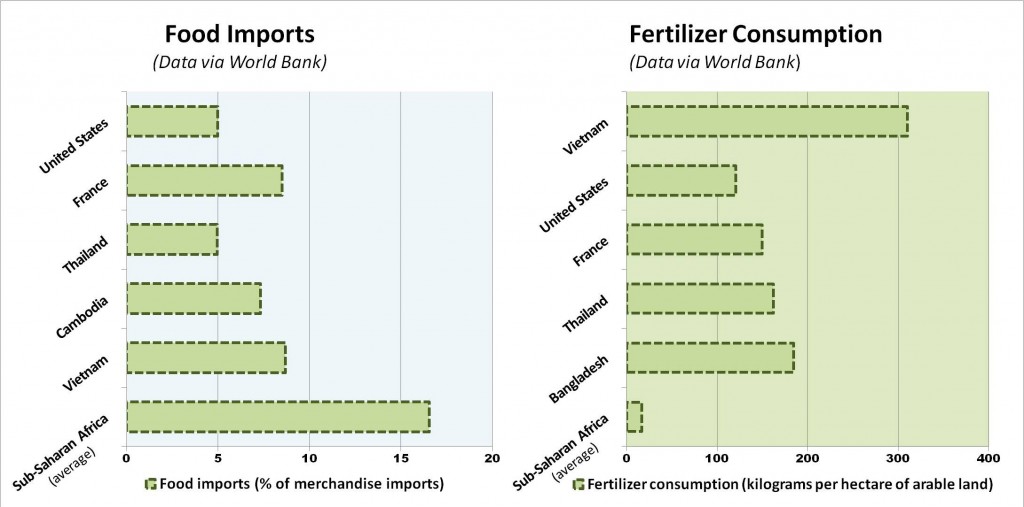Updated
Morocco and Gabon Helping Africa Take Care of Itself – David S. Bloom
.
* Of the dozens of agreements and deals struck during Moroccan King Mohammed VI’s whirlwind tour of West Africa, one in particular is a striking example of Africa taking a major step towards improving itself… The potential for increased production and some degree of alleviation of Africa’s food crisis is astounding. *
.

David Bloom, Research Associate
David S. Bloom, MATIC
March 15, 2014
Of the dozens of agreements and deals struck during Moroccan King Mohammed VI’s whirlwind tour of West Africa, one in particular is a striking example of Africa taking a major step towards improving itself. Judging by the lack of media coverage, the deal hasn’t wowed international spectators, but it should.
The framework agreement to develop an industry of fertilizer manufacturing using raw materials in both Morocco and Gabon is exactly the kind of project the international development community talks about—a market-driven partnership that addresses endemic problems (food production), utilizes resources (rather than exporting them and importing finished products), and creates jobs and industrial specialization (through South-South cooperation, no less).
At the time of the Green Revolution in the 1970’s, Africa and Asia used similar amounts of fertilizer. Today, Asia uses over five times the amount Africa does. Sub-Saharan African countries average a fraction of the fertilizer use of most other agriculture producers.
As a result, “farmers across sub-Saharan Africa have lost an average of 22 kilograms of nitrogen, 2.5 kilograms of phosphorus, and 15 kilograms of potassium per hectare annually over the past 30 years—the yearly equivalent of US$4 billions’ worth of fertilizer.” And this is just the result for arable land which is in use, as nearly 80% of Africa’s total arable land is not being exploited.
The potential for increased production and some degree of alleviation of Africa’s food crisis is astounding.
The fertilizer production facilities, to be constructed in both Morocco and Gabon, will not only offer a product far less expensive (after removing international shipping and foreign middle-men), but it will also be “adapted to the specificities of the different ecosystems that make up Africa soil,” according to Mostapha Terrab, CEO of The Office Cherifien de Phosphate (OCP) and signatory to the deal.
For Morocco and Gabon, it also means moving up the value chain, from exporting raw materials to manufacturing finished products.Beyond food security and boosted agricultural production, the initiative is said to involve the creation of 5,000 direct and indirect jobs between Morocco and Gabon.
What’s more remarkable is that Africa is creating an industry—a far better use of resources than their exportation alone. Its success will drive the creation of supportive businesses and specialized education infrastructure, which itself spurs innovation. It will also promote the development of intercontinental trade infrastructure as the product begins to ship, hopefully spurring other forms of trade.

This is the very best kind of development—one where countries utilize their natural assets and ingenuity, work together, and address the continent’s problems.
Morocco is not new to this kind of forward thinking—its burgeoning green energy industry is now taking shape after years of effort—and it exemplifies the market-conscious long-term approach that the country uses to address big problems.
The deal is just one of dozens struck during the Moroccan King’s visit to Mali, Cote d’Ivoire, Guinea, and Gabon, involving industries ranging from fishing, home building, and mining. Africa may soon see the fruits of this labor.
David Bloom is a Research Associate at the Moroccan American Center.